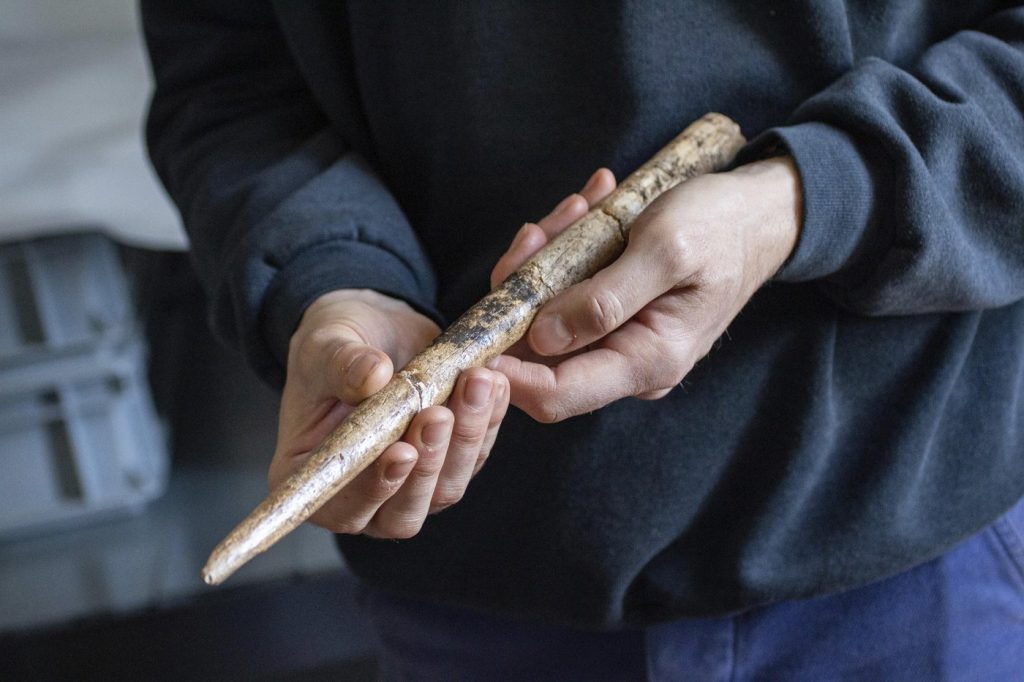Scientists have recently identified the oldest known evidence of humans crafting tools from whale bone, shedding light on the interaction between early humans and marine environments. These tools, which were shaped into narrow projectiles intended for hunting, were discovered in excavations carried out more than a century ago in the Bay of Biscay, located between Spain and France.
Initially, these ancient tools were deemed significantly old, but due to the fragmented nature of the findings, determining their precise age was challenging. However, recent technological advancements have enabled researchers to date the oldest of these artifacts to approximately 20,000 years ago. The analysis revealed that the bones originate from various whale species, including blue whales, fin whales, and sperm whales.
Vicki Szabo, a researcher at Western Carolina University who studies the history of whaling but was not part of this study, noted the long-standing relationship between humans and whales, indicating that this interaction has been persistent throughout history. The current research, published in the journal Nature Communications, suggests that ancient humans may have been crafting tools not only in coastal regions but also in the Arctic and the South Pacific.
While evidence of whale bone tools has been found dating back about 5,000 years, this new research pushes the timeline back significantly. Jean-Marc Petillon, a study author from the French National Centre for Scientific Research, pointed out that these ancient people were likely not hunting whales directly. Instead, they were most probably scavenging the carcasses of beached whales to repurpose their dense and heavy bones into tools that could be used to hunt animals like reindeer or bison.
The discovery of these tools highlights how ancient humans utilized available resources from coastal environments for their survival, signifying their adaptability and resourcefulness. Additionally, it is believed that these ancient populations also engaged in collecting seashells and fishing. However, finding such archaeological evidence has been challenging, as rising sea levels have continued to disrupt coastlines globally, further complicating the ability to study ancient human interactions with marine resources.
Petillon emphasized the significance of coastal environments to human groups in the distant past, pointing to the essential role these ecosystems played in the survival and development of early human societies. The implications of these findings suggest a deeper understanding of how early civilizations interacted with their environment and adapted to the resources that were available to them.












